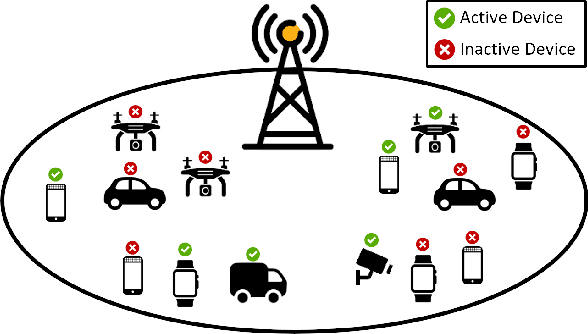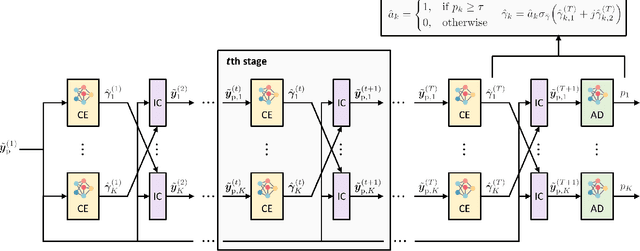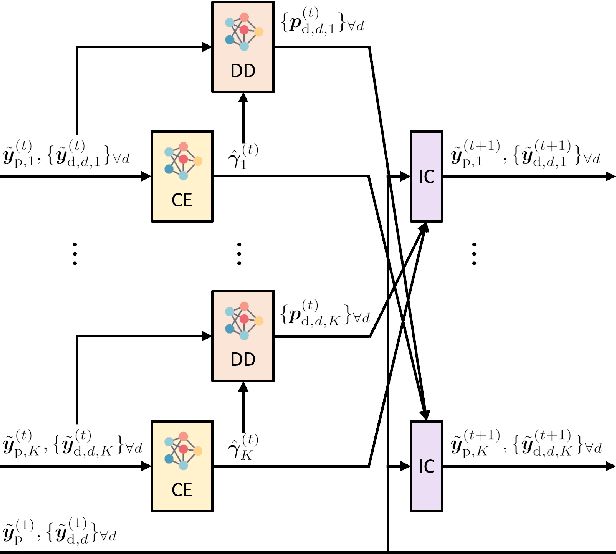Jaehong Jo
Beam-Squint-Aided Hierarchical Sensing for Integrated Sensing and Communications with Uniform Planar Arrays
Dec 31, 2025Abstract:In this paper, we propose a novel hierarchical sensing framework for wideband integrated sensing and communications with uniform planar arrays (UPAs). Leveraging the beam-squint effect inherent in wideband orthogonal frequency-division multiplexing (OFDM) systems, the proposed framework enables efficient two-dimensional angle estimation through a structured multi-stage sensing process. Specifically, the sensing procedure first searches over the elevation angle domain, followed by a dedicated search over the azimuth angle domain given the estimated elevation angles. In each stage, true-time-delay lines and phase shifters of the UPA are jointly configured to cover multiple grid points simultaneously across OFDM subcarriers. To enable accurate and efficient target localization, we formulate the angle estimation problem as a sparse signal recovery problem and develop a modified matching pursuit algorithm tailored to the hierarchical sensing architecture. Additionally, we design power allocation strategies that minimize total transmit power while meeting performance requirements for both sensing and communication. Numerical results demonstrate that the proposed framework achieves superior performance over conventional sensing methods with reduced sensing power.
Deep Learning-Assisted Parallel Interference Cancellation for Grant-Free NOMA in Machine-Type Communication
Mar 12, 2024



Abstract:In this paper, we present a novel approach for joint activity detection (AD), channel estimation (CE), and data detection (DD) in uplink grant-free non-orthogonal multiple access (NOMA) systems. Our approach employs an iterative and parallel interference removal strategy inspired by parallel interference cancellation (PIC), enhanced with deep learning to jointly tackle the AD, CE, and DD problems. Based on this approach, we develop three PIC frameworks, each of which is designed for either coherent or non-coherence schemes. The first framework performs joint AD and CE using received pilot signals in the coherent scheme. Building upon this framework, the second framework utilizes both the received pilot and data signals for CE, further enhancing the performances of AD, CE, and DD in the coherent scheme. The third framework is designed to accommodate the non-coherent scheme involving a small number of data bits, which simultaneously performs AD and DD. Through joint loss functions and interference cancellation modules, our approach supports end-to-end training, contributing to enhanced performances of AD, CE, and DD for both coherent and non-coherent schemes. Simulation results demonstrate the superiority of our approach over traditional techniques, exhibiting enhanced performances of AD, CE, and DD while maintaining lower computational complexity.
 Add to Chrome
Add to Chrome Add to Firefox
Add to Firefox Add to Edge
Add to Edge